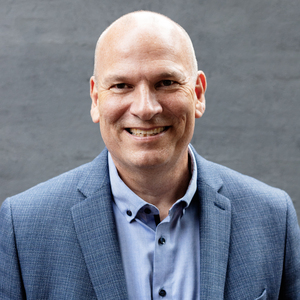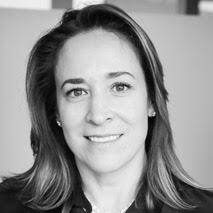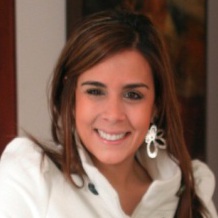Ask Alto: What is career cushioning, and why is it a good idea?
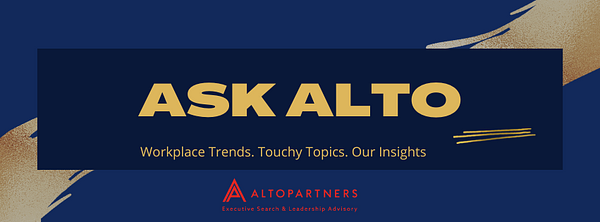
The business world has been shaken by dramatic economic and geopolitical events over the last few years. Inflation, tight labour markets, the first major land war in Europe since 1945 and substantial economic disruption due to climate change and Covid-19 have all taken their toll on individuals and organisations.
In these circumstances, it’s not surprising that the world of work has been swept by various trends and buzzwords, often fuelled by social media. Quiet quitting was one such trend, describing situations in which people show up for work but stay strictly within the boundaries of their job requirements. And now there’s “career cushioning”, the practice of looking for, or being on the lookout for, a new job before it’s actually needed.
What’s driving this trend?
Having a “plan B” in one’s career is by no means a new concept, but the active seeking of long-term security in one’s professional life has been given new impetus by the events of the last few years and by shifting labour patterns.
Marjorie Kean, Managing Director in the Miami office of Diversified Search Group / AltoPartners USA, says instability in the economic and political environment has made stock markets nervous, while a slowdown in consumer spending is causing the United States economy to flounder. “We’re anticipating a slowdown in hiring. Starting in December 2022, clients were postponing their decisions on our proposals and in some cases rethinking their needs.”
At the same time, the number of candidates reaching out to the executive search teams has increased considerably. “And most seem to be anticipating a need for change… unlike the years of Covid when people were reluctant to make a move, there is definitely movement in the air,” she says.
Across the globe, firms in the AltoPartners partnership agree that the labour market is under pressure. In France, says Vincent David, Partner at Leaders Trust International / AltoPartners France, the tech industry has been impacted by the global downward trend and hiring freezes (although companies continue to spend strategically on areas like the cloud and cybersecurity). In Denmark, unemployment is growing in the construction and architecture sectors, according to Christian Rolin, Partner at Peoplement / AltoPartners Denmark.
In Switzerland, the employment market is still healthy, despite some restructurings, layoffs, and recruitment freezes. “Actually, as seems to be the trend in several countries, there is a shortage of talent in some sectors, which is interesting for someone looking to change roles,” says Greta Frey, Senior Consultant at MPB Recruitment Group / AltoPartners Switzerland.
In Mexico, there’s a good employment market for talented individuals with a strong resume. “However, at the entry level and middle management level, the competition is fierce, and compensation levels are relatively low,” says Claudia Hardy, Partner at Ezentia Leadership / AltoPartners Mexico.
It’s clear that taking job security for granted is not a wise move. But there are a number of factors to consider when weighing career options.
Knowing when to stay and when to go
Corinne Klajda, CEO of Accord Group Polska / AltoPartners Poland, says the decision about whether to change jobs comes down to circumstances. “I don’t believe in change for the sake of change. If it makes career sense because there’s an opportunity to take on a challenge that is not available with your current employer, then yes. But if it is to move to a similar role, then no. The market is unpredictable, there’s a war next door (in Ukraine), inflation is going through the roof, and you will have the same difficulties everywhere.”
Magdalena Ihre, Senior Partner at Novare Executive Search / AltoPartners Sweden, thinks differently, pointing out that a harsh economic climate can be an opportunity for advancement, especially in areas where skills are in short supply.
Mpho Nkeli, Executive Chairman & Head: Board Practice at Search Partners International (SPi) / AltoPartners South Africa, notes that if an employee is working in a sector that’s in decline, it’s a good idea to move. Martina Alexandersson, Researcher / AltoPartners Sweden, adds that personal factors are also important. “If someone doesn’t feel good about what they do, or where they do it, then there is a reason to change. It is never a good idea to stay somewhere if you don’t feel good.”
María Isabel Ventura, Partner at Executive Connection S.A.S / AltoPartners Colombia, advises people to think deeply before making a move. “Consider the business environment and whether the new role is sustainable over the long term– that means looking at company culture, leadership style, the company’s position in the market and political factors.”
But it is a good idea to have a plan B!
AltoPartners associates are unanimous that is always a good idea to be working on your career and your future path – and that begins with your current job.
Says Hardy: “In the current economic climate it is advisable for people to focus on giving their best performance in their current job as that will certainly provide them with the credentials to find another job if need be.” Klajda agrees that a solid track record is crucial to future employability, and that means creating a “healthy and thriving business and teams”.
In addition to creating that solid track record, there are a number of “insurance policies” that people should be thinking about:
Be open to challenges and opportunities: David says it is useful to stay aware of the economic situation. Even if there is no specific event that would cause an employee to look outside their current job, it’s important to be scanning both the current company and outside companies for information and comparison purposes.
Be visible, connected and stay up to date: That means working on a LinkedIn profile, maintaining a thriving professional network and having a current CV ready and waiting.
Self-knowledge: Michael Sarnoff, Managing Director and Practice Leader, Financial Services at Diversified Search Group / AltoPartners USA, says professionals should know their value in the market. “That is helped by at least occasionally speaking to a search professional to get a sense of their career options.”
Top tip: Career cushioning is all about skills
It’s clear that the best “plan B” in times of uncertainty is to perform well in your current role. That always involves working on skillsets – and if those skillsets can set up a future career change, so much the better.
In the current market, there are key actions that count towards upward mobility and career flexibility, AltoPartners experts say, emphasising that it’s important to be working on all of these areas long before you need to move to a new position:
- Be a change agent – the ability to enter a new organisation and do things differently, more efficiently and more profitably is valuable. Start with finding ways to practice this skill in your current organisation.
- Be tech-savvy, which means being knowledgeable about how to maximise the use of technology strategically in a business, rather than someone who can only apply practical technical skills to particular business needs.
- Work on gaining solid and wide-ranging experience and expand that with multi-national exposure if possible.
- Be willing to lead transformation - evidence of having managed a change process is prized in the executive job market.
- Be able to lead remote, hybrid and in-office teams.
- Be a strategic leader with a track record of executing those strategies with high emotional intelligence.
- Have a strong work ethic and be intrinsically motivated.
- Be efficient – and be effective too.
- Deliver real content on social media skills: aim for topical posts, with a suitable degree of gravitas.
- Demonstrate respect for a diverse workplace.
What business leaders can do to retain staff in an era of uncertainty
No one can provide their workers with a 100% guarantee of job security, and career cushioning is a wise strategy for employees. That said, there are some steps leadership can take to keep things on an even keel:
- Regularly communicate the financial performance of the company – and if people have been laid off, be clear about whether more layoffs are expected.
- Recognise that workers value flexibility – and will want to stay in a position where their needs are taken into account.
- Define clear career paths within the organisation so that employees know where they stand.
- Be clear about the company’s purpose and mission. Employees are less likely to disengage if they feel aligned with an organisation’s values.
How (and when) can an executive search consultant help with career transitions?
Rolin observes that there should be a constant process of reviewing what people really want in their careers. “It is surprising how little people are willing to invest in their careers,” he says, observing wryly that people will pay $10,000 for a mountain bike, but balk at paying $8,000 for a session with a professional, which could change their life.
Frey agrees, saying that it’s a good idea for people to stay in touch with search consultants throughout their careers. “Generally, those who have a pulse on the market and are proactive are more likely to be at the right time in the right place speaking to the right person!”
Hardy says a signal to reach out to a consultant is the feeling that your current job is not fulfilling you. “A consultant may be able to help you determine your next career move, based on your abilities, transferable skills, needs and interests.”
Sarnoff agrees that a consultant has a feel for specific jobs and the overall market, while Hansjörg Meine, Managing Partner at Alto Consultants GmbH / AltoPartners Germany, says it’s never too late to speak to a consultant. “It’s helpful to brainstorm with an experienced professional to broaden your current perspective and open the window of opportunity wider.”
Career cushioning is time well-spent
Hardy points out that working on a “plan B” takes a significant amount of time and resources. But it is a process that has value for current and future career moves. Ihre suggests viewing career cushioning as a way of reskilling and updating one’s knowledge in a business world that is constantly transforming. Her suggested mantra for 2023? Be open to change!
With grateful thanks to the following partners for their advice and input:
- Martina Alexandersson, Researcher / AltoPartners Sweden;
- Vincent David, Partner at Leaders Trust International / AltoPartners France;
- Greta Frey, Senior Consultant at MPB Recruitment Group / AltoPartners Switzerland;
- Claudia Hardy, Partner at Ezentia Leadership / AltoPartners Mexico;
- Magdalena Ihre, Senior Partner at Novare Executive Search / AltoPartners Sweden;
- Marjorie Kean, Managing Director in the Miami office of Diversified Search Group / AltoPartners USA;
- Corinne Klajda, CEO of Accord Group Polska / AltoPartners Poland;
- Hansjörg Meine, Managing Partner at Alto Consultants GmbH / AltoPartners Germany;
- Mpho Nkeli, Executive Chairman & Head: Board Practice at Search Partners International (SPi) / AltoPartners South Africa;
- Christian Rolin, Partner at Peoplement / AltoPartners Denmark;
- Michael Sarnoff, Managing Director and Practice Leader, Financial Services at Diversified Search Group / AltoPartners USA;
- María Isabel Ventura, Partner at Executive Connection S.A.S / AltoPartners Colombia.

Marjorie Kean
Managing Director AltoPartners Miami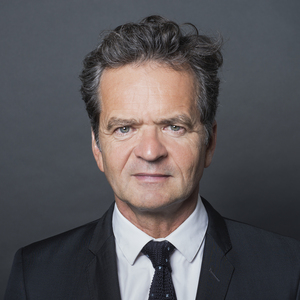
Vincent David
Partner AltoPartners Paris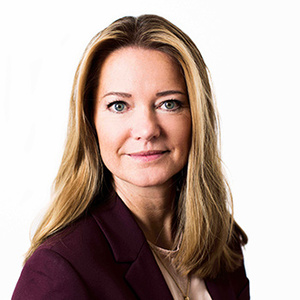
Magdalena Ihre
Senior Consultant & Partner AltoPartners Stockholm
Mpho Nkeli
Executive Chairman & Head: Board Practice AltoPartners Johannesburg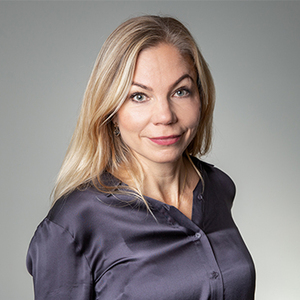
Martina Alexandersson
Researcher AltoPartners Stockholm
Michael Sarnoff
Managing Director and Practice Leader, Financial Services AltoPartners Mission Viejo
